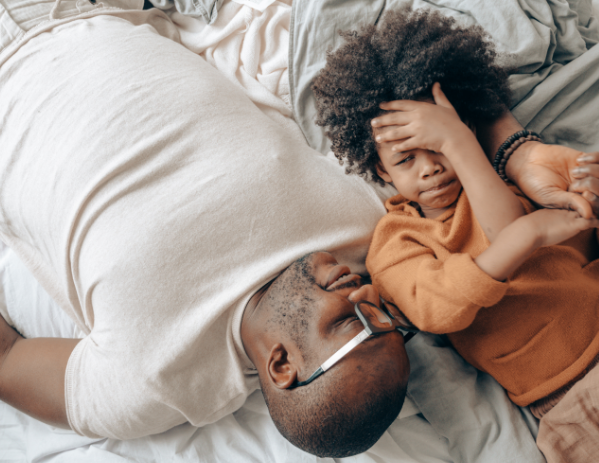







It is really hard to properly explain science in the space of a Facebook post, or even a 2-minute news story on TV. And when explanations get shortened, information can get inaccurate. As a result, there are many sleep myths that have been widely circulated and that many people believe in! Let’s clear some of them up.
Myth busted: One of the most common myths we hear about sleep is that you need to hit a certain number. For adults, that number is often reported to be 7 or 8 hours. While many adults may need 7 to 8 hours of sleep per night, it is absolutely not true that every adult needs that amount. Check out the “How much sleep does my child need?” section for more information.
Myth busted: The amount of sleep your child gets is important. But it is not everything. The quality of their sleep is just as important. Think about their diet: No one would ever say that your child simply needs to eat more food to be healthy. They should eat the right amount of food that is high quality and nutritious!
Myth busted: Light, occasional snoring is typically not something to worry about. However, if your child snores loudly and does so multiple nights a week, this may be something to discuss with their medical team. This may be a sign of sleep apnea, which is a sleep disorder that prevents your child from getting the oxygen that their body needs. An evaluation for sleep apnea in children typically involves a sleep study, which is a non-invasive way of learning about their breathing patterns at night. This good video will give you a sense of what a sleep study looks like.
Myth busted: The temptation to hit the snooze button is understandable, especially if your child did not have a great night of sleep. However, it is unlikely to provide them with good sleep. Instead, it gives them choppy sleep that is not nearly as restorative. Instead of hitting the snooze button, plan an early morning activity that is enjoyable for the family to get everyone over that morning hump!
Myth busted: That extra time spent in bed, often trying to fall asleep, is teaching your body a bad habit. Instead of helping, it sends a signal that sleep requires effort—and unfortunately, the harder your child tries to fall asleep, the more frustrated they become, and the less likely they are to fall asleep. Rather than conditioning their bodies and minds to associate frustration with sleep, it is better to engage in a quiet and calming activity out of bed for 30 minutes or so, and return to their bed if they feel like they are able to fall asleep.